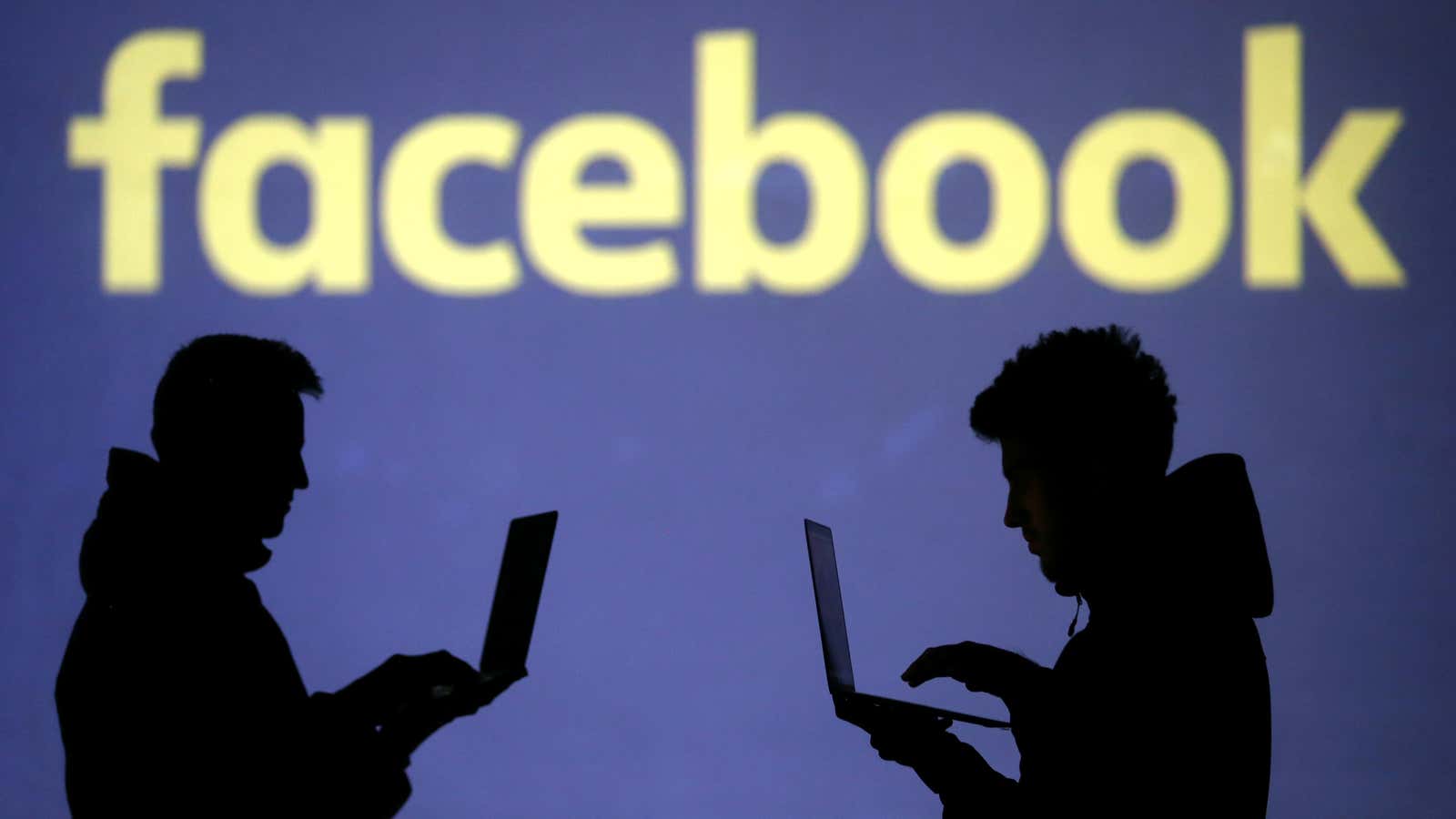Stock traders beware! Being Facebook friends and clicking on “likes” could be construed as evidence for India’s market regulator to link individuals in insider trading cases.
On April 16, the Securities and Exchange Board of India (SEBI) held three entities, Rupeshbhai Kantilal Savla, Sujay Ajitkumar Hamlai, and the latter’s firm V Techweb India, guilty of insider trading. The three entities made illegal gains by trading in shares while in possession of unpublished price-sensitive information, the order said.
Savla is the promoter of a listed company, Deep Industries (DIL), which bagged three contracts for supplying mobile drilling rigs to state-owned oil explorer ONGC in 2015. According to the regulator’s findings, between the time the company bagged each order and informed the stock exchange, Savla, Hamlai, and V Techweb had bought shares of DIL and sold it subsequent to the announcement of the contracts.
Hamlai and his firm made a profit of over Rs50 lakh (about $78,000), which has now been impounded by the regulator.
But how was the connection between Savla and Hamlai established?
According to the SEBI order, Savla and his wife were friends with Hamlai and his wife on the social networking site Facebook, and they “liked” each other’s photos regularly. Savla and Hamlai denied having any business relationship beyond a social acquaintance. But the SEBI order said that an “insider can be by way of their association in any capacity or it can be by way of frequent communication with its officers which can also be in their social capacity as evident in this case by frequent interactions including ‘likes’ on social media.”
In other words, “if there are no messages exchanged on Facebook regarding this particular case of insider trading, then it (SEBI) will try to establish that these people were in touch with each other,” explained JN Gupta, managing director at Stakeholders Empowerment Services, a corporate governance research and advisory firm.
“When I am in touch with you, I may not be recording everything on Facebook. But certain things I may be sharing with you on the phone, or even at social meetings,” added Gupta, who also served as an executive director at SEBI between 2009 and 2011.
The order is likely to be contested in courts and open a can of worms. “While the SEBI order seems to base its prima facie findings on Facebook likes, it is only one of the many factors considered to come to its preliminary findings. Other factors like trading pattern, admission of being acquaintances etc. have also been considered. Whether this matrix of information is sufficient in the final ruling will need to be seen,” Sandeep Parekh, former executive director at SEBI and founder of Finsec Law Advisors, told the Economic Times newspaper on April 26.
An email questionnaire sent to SEBI on this issue remained unanswered.
